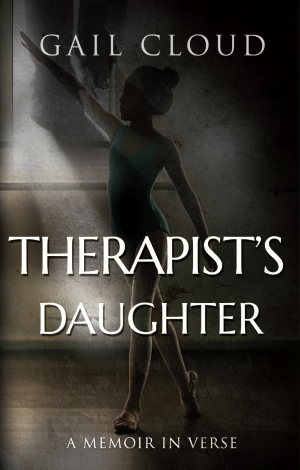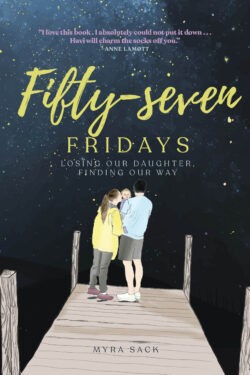Marsha Lederman begins her journalistic memoir with an epigraph from Isaac Bashevis Singer: “A person is literally a cemetery where multitudes of living corpses are buried.” This chilling quote sets the tone for Lederman’s first chapter, in which she relates how, even in beautiful moments, she can’t help but think of the Holocaust.
This is because Lederman, a columnist for Canada’s The Globe and Mail, is the child of survivors. Her father Jacob was living near Lodz, Poland, when the Nazi occupation began. Working in the Piotrków ghetto, the twenty-something managed to strike a deal with a guard and flee, at which point he secured false papers from a sympathetic Polish official. Then, with Tadek Rudnicki as his new name, he boarded a train to Germany to work on a farm. He survived the war pretending to be a churchgoing Polish Catholic.
Lederman’s mother, on the other hand, grew up in Radom, Poland. As a young teen, Gitla (or Gucia) Lindzen was made a slave laborer in the Radom ghetto, and, following that, a munitions factory. Nazi guards then marched her and the other factory workers to Birkenau. There, in the most hopeless of places, she was reunited with her sister and aunt. A few months later, the three of them accepted an offer, if one can call it that, to work at a munitions factory in Lippstadt, Germany. Conditions there were somewhat better, albeit temporary; after six months, the Nazis forced them and hundreds of other women to march. They were on their way to Bergen-Belsen when they were liberated by American soldiers. But by then, most of Lindzen’s and her future husband’s relatives had been murdered at Treblinka.
Lederman’s plunge into her parents’ history coincided with a painful period in her own life: her divorce and its aftermath. “My big idea on how to get a grip was to start reading about the Holocaust again,” she writes. “I wanted my parents; I had never needed my mother’s love or my father’s strength and protection more. This was as close as I could come, I figured, to accessing it.”
After carefully detailing her parents’ stories — stories she regrets not asking them about when they were still alive — Lederman puts her journalist goggles on. She’s desperate to understand whether the Holocaust has affected her ability to cope with difficult situations, like divorce, and whether this trait will be passed on to her son. In what is perhaps the liveliest part of the book, Lederman draws on epigenetic and sociological research about 2Gs — the “second generation,” the term for children of Holocaust survivors. Findings in this field, Lederman says, are contradictory. But one thing is for certain: 2Gs are incredibly resilient.
Lederman also discusses Holocaust denial and her brushes with it as a journalist; the importance of bearing witness to all injustices; the power of community; and her complicated feelings about Canada, which simultaneously gave her immigrant parents refuge and implemented racist policies to separate Indigenous children from their families. She moves on to describe her 1998 visit to various concentration camps and her parents’ hometowns, as well as her thwarted attempt in 2020 to see the German farm that saved her father.
This is quite a lot to cover in one book, and while much of it is necessary — especially its exploration of intergenerational trauma and its intersectional approach to activism — Lederman’s project sometimes feels overambitious. The writing can be repetitive, and many of her cheeky parenthetical asides seem tonally misplaced. That said, Lederman’s talent and compassion as a journalist are clear. She paints a thorough and thought-provoking portrait of her parents’ legacy, a legacy that includes her own life.
“I will never understand why — why a monster would wish for the annihilation of an entire race and countless people would not only follow orders but do it gleefully,” she writes in “Life,” the book’s eighteenth and final chapter. “ … But I am here. And I have a responsibility to speak up against injustice, to raise my child and launch him into a happy life, to do whatever good I can in this world to help alleviate all of the bad. I’m not sure what that looks like,” she goes on, “but I think writing this all down has been a start.”
Writing is indeed a start. And so, too, is reading.
Kyra Lisse is a writer and editor from the Philadelphia area. Her work has been published in or is forthcoming from Ghost City Review, Sky Island Journal, SWWIM, New Voices, and Assay: A Journal of Nonfiction Studies, among other places. Kyra currently lives in Lancaster, PA.





